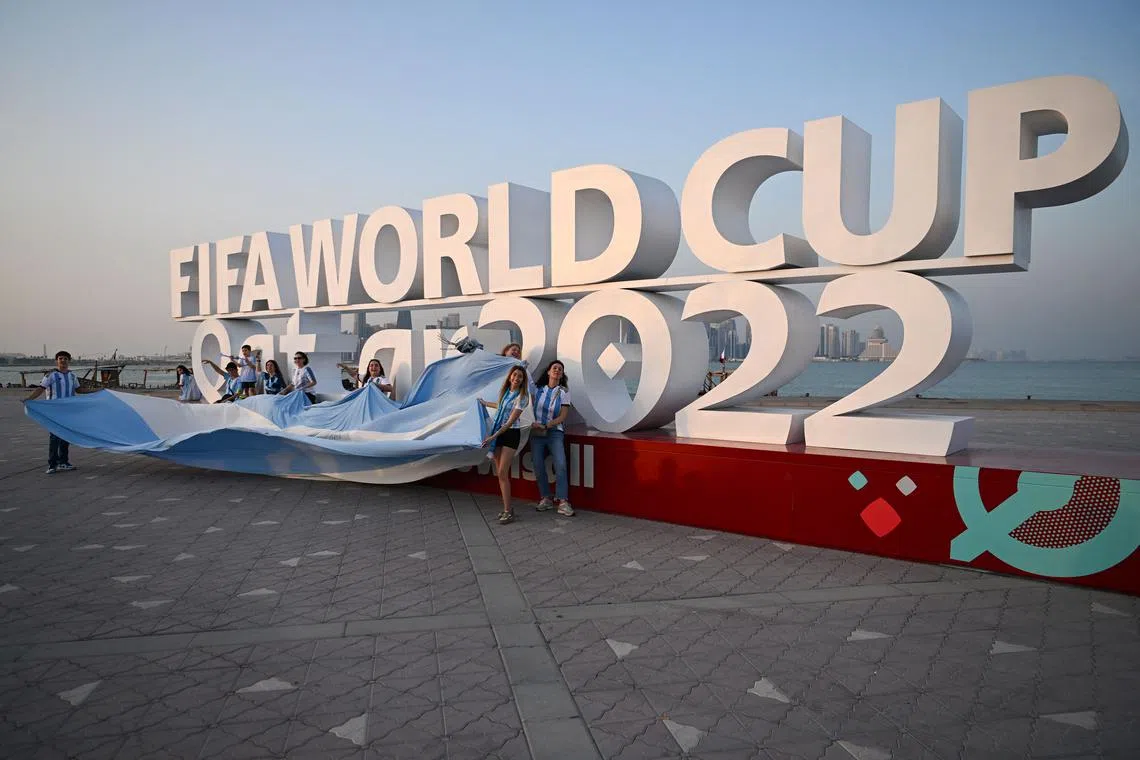World Cup: Qatar 2022 ambassador says homosexuality is 'damage in the mind'
Sign up now: Get the biggest sports news in your inbox

Homosexuality is illegal in Qatar, and some football players have raised concerns over the rights of fans travelling for the event.
PHOTO: AFP
Follow topic:
BERLIN – A Qatar World Cup ambassador has told German broadcaster ZDF that homosexuality was “damage in the mind”, as the Gulf state prepares to host the global tournament in less than two weeks.
In an interview filmed in Doha and to be screened later on Tuesday, former Qatari international Khalid Salman addressed the issue of homosexuality being illegal in Qatar.
The country expects more than one million visitors for the World Cup and Salman said anyone coming to Qatar for the tournament should behave according to the rules of the country.
“They have to accept our rules here,” he said, in an excerpt of the interview. “(Homosexuality) is haram. You know what haram (forbidden) means?“ he said.
When asked why it was haram, Salman: “I am not a strict Muslim but why is it haram? Because it is damage in the mind.”
The interview was then immediately stopped by an accompanying official. Reuters contacted Fifa and World Cup organisers in Qatar for comment.
Organisers have repeatedly said everyone was welcome in the country during the World Cup.
Homosexuality is illegal in the conservative Muslim country, and some football players have raised concerns over the rights of fans travelling for the event, especially LGBT+ individuals and women, whom rights groups say Qatari laws discriminate against.
Qatar is the first Middle Eastern country to host the World Cup but the small nation has come under intense pressure in recent years for its treatment of foreign workers
The country’s human rights record has led to calls for teams and officials to boycott the Nov 20-Dec 18 tournament. REUTERS

